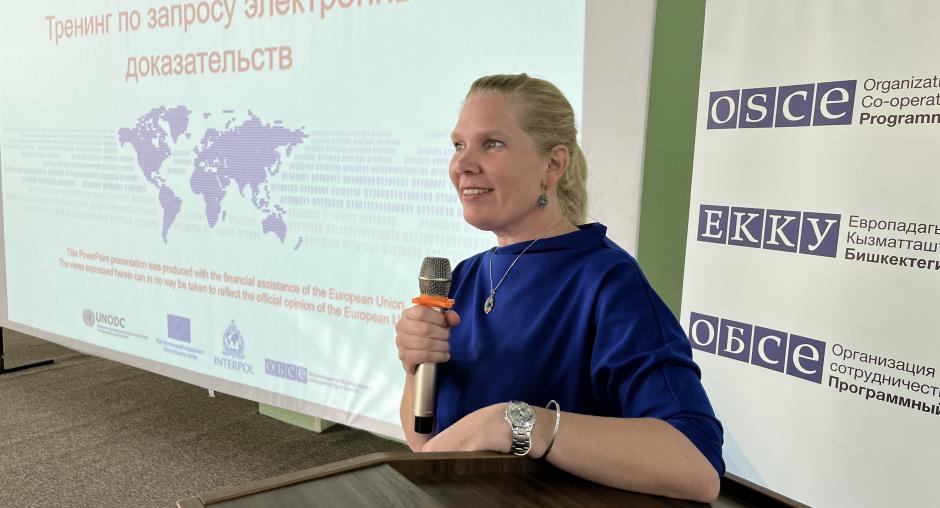Kyrgyz authorities trained on requesting electronic evidence from abroad

The OSCE Programme Office in Bishkek and the OSCE Transnational Threats Department piloted a new training-of-trainers course on requesting electronic evidence across borders on 5 to 8 September in Kyrgyzstan. The course, developed jointly by the UNODC, Interpol, and the OSCE with the financial support from the European Union, is based on the United Nations Practical Guide on Requesting Electronic Evidence Across Borders.
Over 30 Kyrgyz representatives from law enforcement and governmental agencies, educational institutions, and the judiciary learnt about the instruments available for requesting electronic evidence from service providers based in foreign jurisdictions. These included preservation requests, voluntary disclosure requests, download tools offered by service providers, police-to-police cooperation channels, emergency disclosure requests, and mutual legal assistance requests.
The course also discussed the challenges in obtaining electronic evidence and the importance of respecting human rights and fundamental freedoms. While it was thematically focused on counter-terrorism, its principles and procedures can be applied to any criminal investigation.
“Electronic evidence is an integral part of any criminal investigation. With most Internet service providers being based abroad, access to this evidence can be challenging for criminal justice actors and increasing number of criminal investigations thus requires international co-operation,“ said Alexander Rogov, Head of the OSCE Programme Office in Bishkek.
This was echoed by deputy director of the Anti-Terrorism Centre of the State Committee for National Security of the Kyrgyz Republic, who underlined that: “Digital devices have become part of our everyday life and are used by all segments of society, including malicious actors such as terrorists. It is increasingly important for law enforcement authorities to be able to obtain electronic evidence to effectively counter various security threats.”
The three-day course was followed by a one-day roundtable in which participants and experts discussed possible changes in the operational procedures of Kyrgyz law enforcement to improve their capabilities and capacity to obtain electronic evidence from abroad.
The OSCE Transnational Threats Department will organize similar training in other OSCE participating States in Central Asia.